Barcelona v Real Madrid: El Clasico could shape Zinedine Zidane's managerial career
- Published
- comments
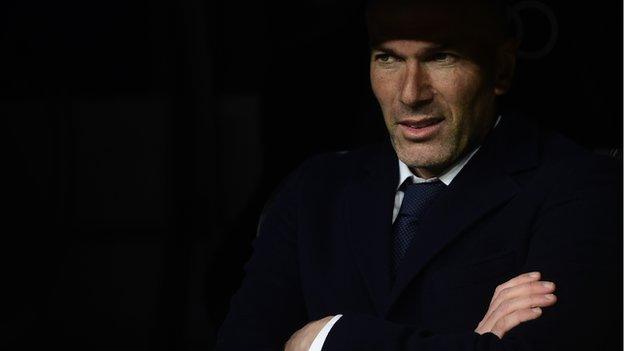
Zidane enjoyed success for Madrid against Barca as a player - can he replicate it from the dugout?
El Clasico - Barcelona v Real Madrid |
|---|
Date: Saturday, 2 April. Kick-off: 19:30 BST |
Coverage: Live text commentary on the BBC website |
Saturday's El Clasico clash between arch-rivals Barcelona and Real Madrid at Camp Nou might not make much difference to La Liga title race, but it provides a golden opportunity for one man in particular to significantly boost his reputation and credibility: Zinedine Zidane.
The France legend has experienced a decidedly mixed start to his managerial career since taking over from Rafa Benitez at the Bernabeu in January.
Although his team have recorded several high-scoring home wins and progressed to the Champions League quarter-finals, they have struggled away from home and lost to local rivals Atletico Madrid, surrendering any realistic chance of catching league leaders Barca and underlining the impression that Zidane has a big task on his hands.
As he heads into his first Clasico as a coach, 43-year-old Zidane does not need to look very far for inspiration.
In the opposition dugout, home team boss Luis Enrique succeeded in overcoming many of the same tribulations currently being encountered by Zidane.
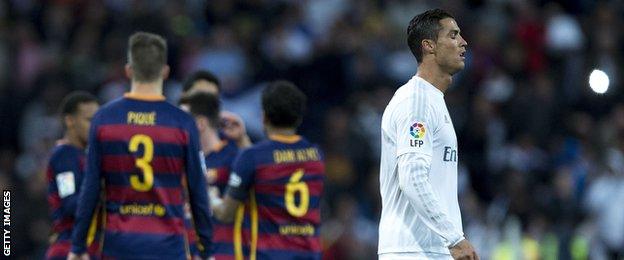
Third-placed Real, who were embarrassed 4-0 by Barca at the Bernabeu in November's reverse fixture, are 10 points adrift of the leaders
Despite the remarkable success he eventually enjoyed last season, Enrique's first few months in charge were anything but easy.
He repeatedly changed his team's personnel and strategy, and suffered a series of poor performances - including a comprehensive 3-1 Clasico defeat at the Bernabeu - to prompt speculation that his job was on the line before his team finally found form midway through the season.
For the early weeks of Enrique's reign, Barca looked like a squad of players who were relying on their undoubted individual abilities rather than committing to a collectively shared game plan - exactly like Real Madrid at the moment.
Zidane and Enrique's playing careers coincided almost exactly and they shared some feisty Clasico encounters on the pitch, most infamously a furious bust-up at the Bernabeu in 2003, external which Enrique recently diplomatically claimed he could not remember.
But now, with Zidane attempting to transform his enormously talented squad into a smoothly functioning team unit rather than a bunch of disconnected individuals, he would do a lot worse than following his Barca counterpart's route to success.
Zidane must maximise Ronaldo's talents
In the same way that Enrique's greatest challenge when he arrived at Barcelona was devising a style of play that got the most out of star player Lionel Messi without detracting from the team's overall effectiveness, so too Zidane is now searching for a system to consistently maximise the talents of Cristiano Ronaldo.
It has been a strange season for the 31-year-old Portuguese. On the one hand, he is La Liga's top scorer with 28 goals in 30 games, so he is hardly struggling.
But the vast majority of those strikes arrived in batches during heavy victories - four against Celta Vigo (in a 7-1 win); three against Espanyol at home (6-0); five against the same opposition away (6-0 again) - and he has rarely delivered when his team have been up against the wall.
Ronaldo came in for particular criticism after his anonymous performance in the local derby defeat by Atletico, and he has also regularly struggled away from the Bernabeu, scoring in only two of his last nine away league games.
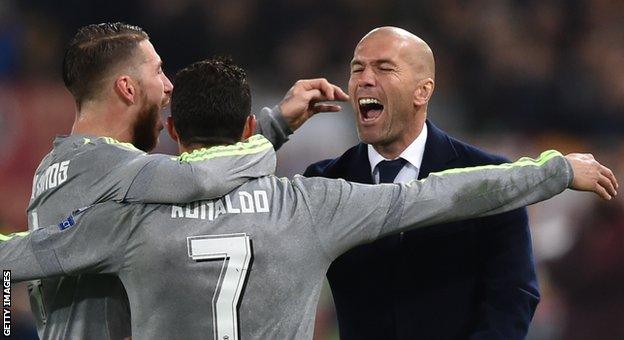
Following Zidane's appointment, Ronaldo said he felt "more empathy" for the Frenchman than his predecessor Rafa Benitez
But Zidane has taken every opportunity to enthuse over the abilities and the importance of the former Manchester United man.
Indeed, in his very first week in the job, Zidane attempted to prevent speculation over Ronaldo's future by emphatically stating: "Cristiano is non-transferable. He is the soul of this team. While I am here, he will not leave."
The warmth of their relationship was evident when Ronaldo celebrated his Champions League goal at Roma in February by running to embrace his coach.
That gesture illustrated a distinct advantage enjoyed by Zidane over his predecessor Benitez - and, to an extent, also over Enrique during his early days at Barcelona.
Whereas Benitez never convinced his Real players that he was the right man to lead them to glory, and Enrique needed a few months to win over some of Barca's key players, that has never been a problem for Zidane, who commands utter respect in the Bernabeu dressing room thanks to his magnificent playing career and his successful stint as Carlo Ancelotti's assistant.
Madrid's 'BBC' needs tuning in
Ronaldo is not, of course, Real's only potential match winner and Los Blancos are heading into this weekend's Clasico with a heightened sense of expectation surrounding the other members of their 'BBC' forward line - Gareth Bale and Karim Benzema (the C in BBC coming from Cristiano).
Both are in fine form after recently returning from injury, with Benzema needing only six minutes of his comeback to open the scoring with a sensational half-volley in the encouraging 4-0 victory over Sevilla prior to the international break.
In the same game, Bale scored, hit the post and crossbar, and provided an assist, and there is a real sense in Spain that the Welshman - if only he can stay fit - is poised to enjoy his best run of form yet in a Real shirt.
Ultimately, however, the success of 'BBC' depends on whether Zidane is able to get them to play together rather than trying to do everything on their own, which can be the case with Ronaldo in particular - hence their struggles against top-quality defences.
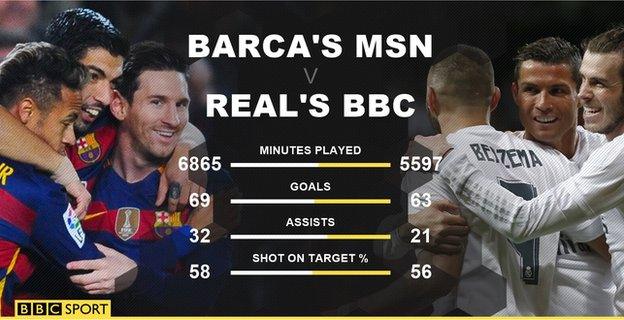
Barca's first-choice front three of Messi, Suarez and Neymar have played more regularly - and been more productive - than Madrid's rival combination of Bale, Benzema and Cristiano in La Liga this season
Just as Messi has enormously benefited from his mutually generous relationships with Luis Suarez and Neymar, Ronaldo's task in propelling Real to glory would be greatly eased if he accepted Bale and Benzema as equals and partners in crime rather than suspiciously viewing them as a threat to his status, as he often appears to.
If Zidane can coax the three of them to harmonise as an in-tune trio rather than solo artists and therefore improve their collective play, as Enrique has achieved with his superstar forwards at Camp Nou, there's no end to what they might achieve.
Zidane searching for winning formula
Identifying Real's main problem - they play as individuals rather than as a team - is clear. Finding a balanced playing system which solves that dilemma is less straightforward, but it does appear that Zidane is building some promising foundations.
In his first few weeks, he experimented with a highly unusual approach which asked his players to switch between 4-2-3-1 and 4-4-2 formations depending on whether they were in possession or in defence.
With the ball, Isco was positioned as an attacking central midfielder behind Benzema, with Ronaldo and Bale or James Rodriguez starting on the left and right wings respectively.
When possession was lost, Isco scampered to the left wing to form a conventional midfield four while Ronaldo drifted into a central position, effectively relieving him of defensive responsibilities.
It was an intriguing system but it rarely looked convincing, with Isco ending up neither doing one thing nor the other. Ronaldo's hybrid winger/striker role detracted from one of his greatest assets - cutting inside at pace from the left flank - and left him too little involved in build-up play.
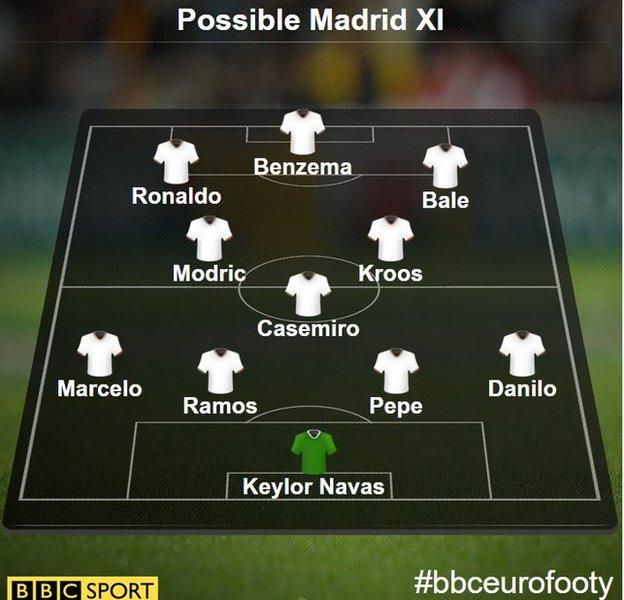
How Madrid could line up on Saturday at Camp Nou
Since the derby loss to Atletico, Zidane has introduced a different strategy by fielding a conventional 4-3-3 formation, with Isco discarded for the more defensive instincts of Brazilian enforcer Casemiro alongside Luka Modric and Toni Kroos in midfield.
Providing adequate protection for the back four has been an issue for Real ever since Xabi Alonso departed for Bayern Munich, with Casemiro, Kroos, Asier Illarramendi, Sami Khedira, Lucas Silva and even Sergio Ramos all unsuccessfully attempting to play the role.
But 24-year-old Casemiro, who spent last season at Porto before returning to the Bernabeu, has impressed sufficiently since being introduced by Zidane to suggest that he could become the answer.
The 4-3-3 is, of course, the same formation employed by Barca, where Ivan Rakitic, Sergio Busquets and Andres Iniesta have found the right balance of supporting both their back four and their superstar strike trio.
Whether Modric, Casemiro and Kroos will end up fulfilling the same function with equal success for Real remains to be seen, but it is almost certainly the strategy that Zidane will adopt this weekend.
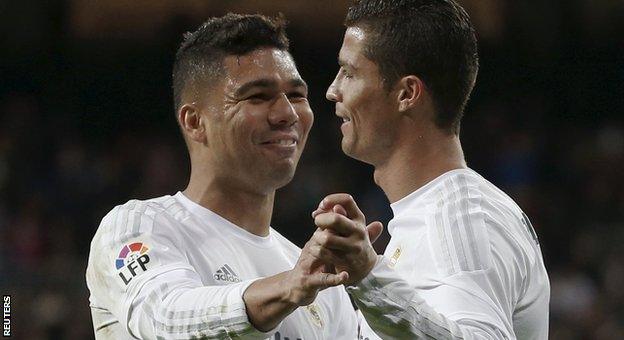
Zidane recalled Casemiro following their defeat by Atletico - and the side have won all five games since
More than just points to play for
With 10 points separating the teams and only eight games remaining, Saturday's meeting is the least significant Clasico in terms of La Liga title race for many years.
And there has consequently been an unusually restrained build-up in the Spanish media, which has instead been dominated by Spain's international friendlies - disappointing draws with Italy and Romania - and the death of Barca icon Johan Cruyff, who will be saluted before kick-off with fans holding up coloured cards to create an enormous mosaic.
But it is still a highly significant game - not necessarily for the result on the day but for the balance of power between the teams, especially as they could still meet again this season in the Champions League.
Any meeting between these two huge rivals is bound to be a passionately contested affair.
As noted by Barca skipper Iniesta earlier this week: "It's always an important game, you can feel it in the atmosphere. We want to move closer to the title and we will not be thinking about the points difference."
After their humiliating loss in the last Clasico, Barca's 4-0 stroll at the Bernabeu in November, and their similar struggles against other top-class opposition this season, Real need to start proving they can compete with the elite.
Even if they lose this weekend, they need a performance which suggests Zidane has them heading in the right direction. With another emphatic defeat, the question marks against the Frenchman would rapidly intensify.
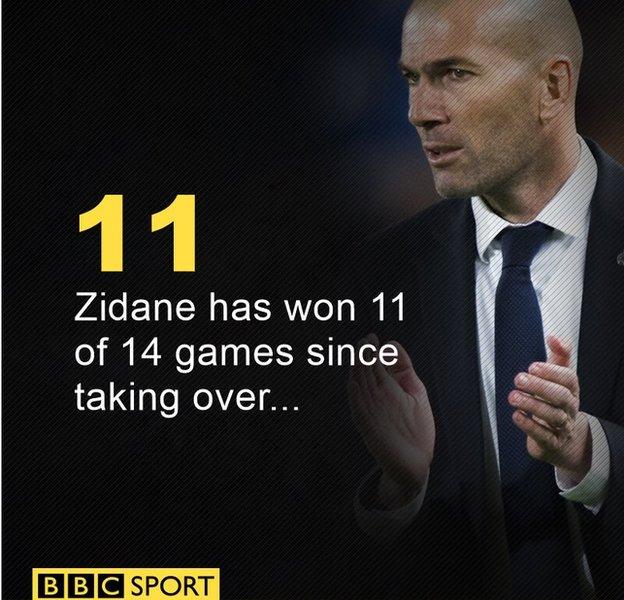
...with his only defeat coming against Atletico Madrid at the Bernabeu.
- Published2 April 2016
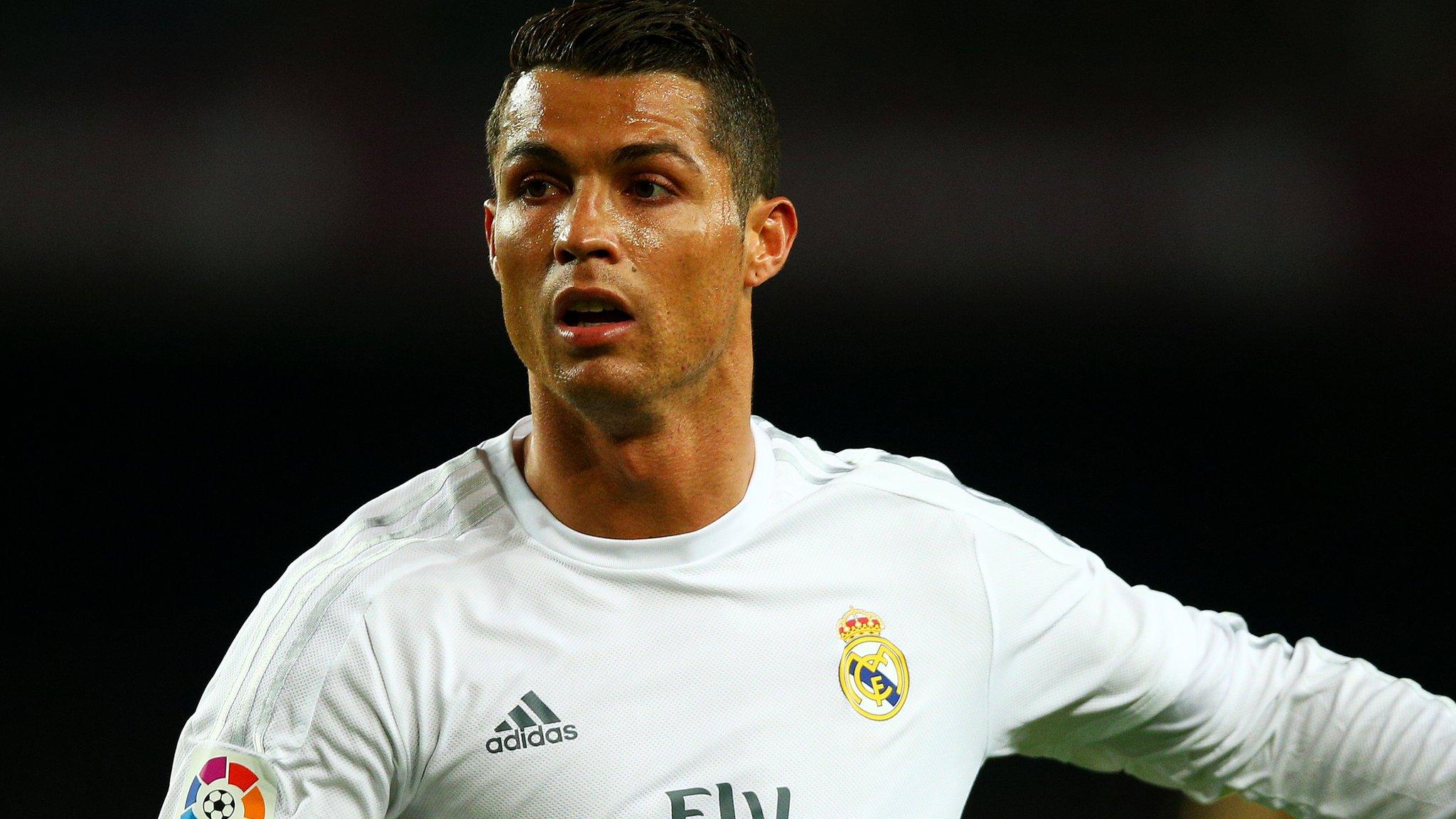
- Published30 March 2016
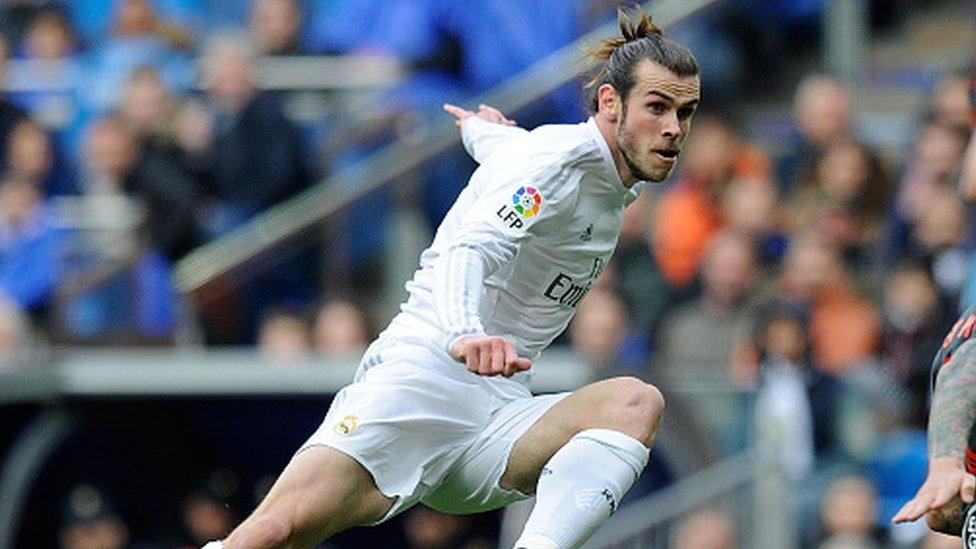
- Published29 March 2016
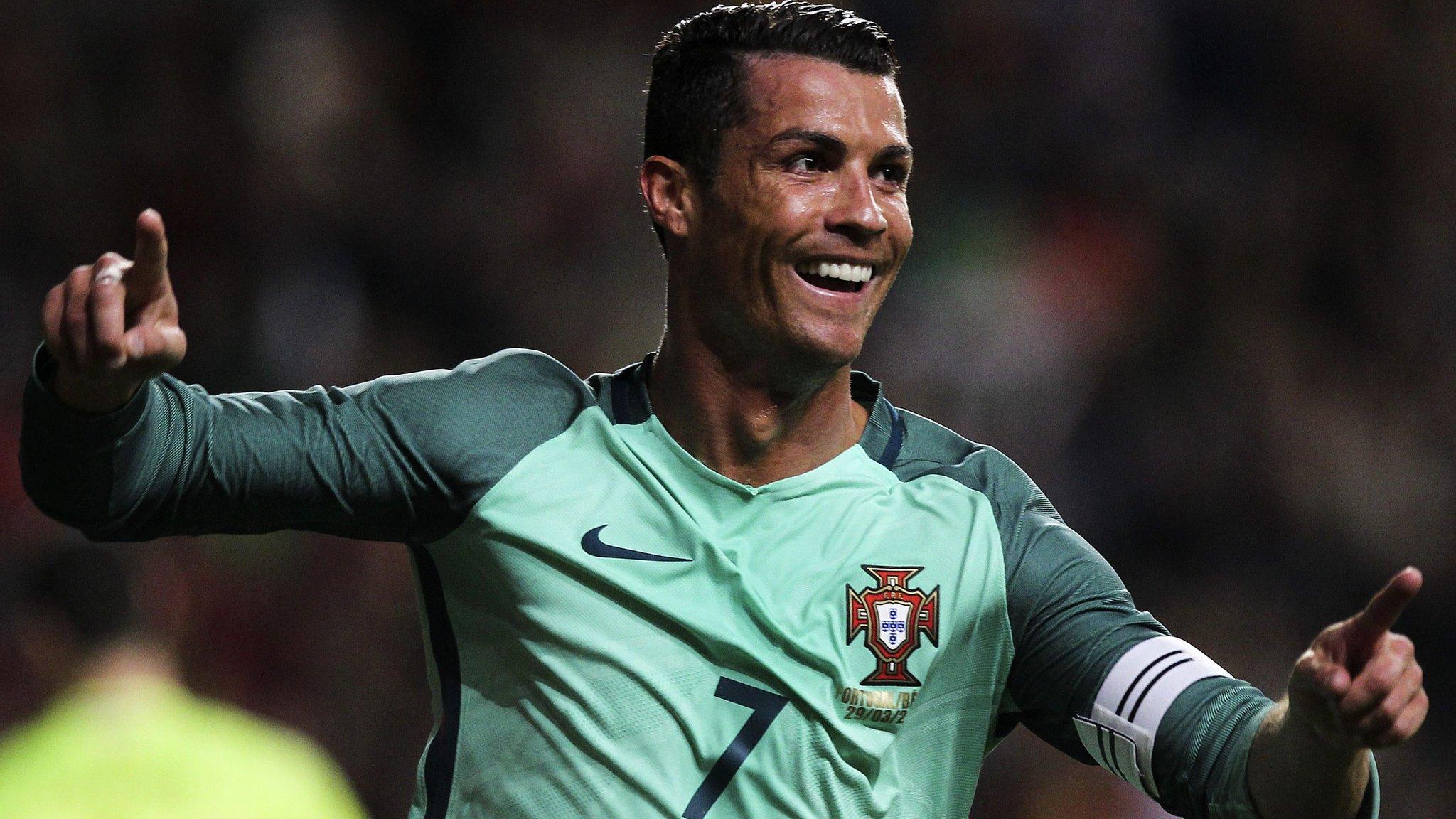
- Published5 January 2016
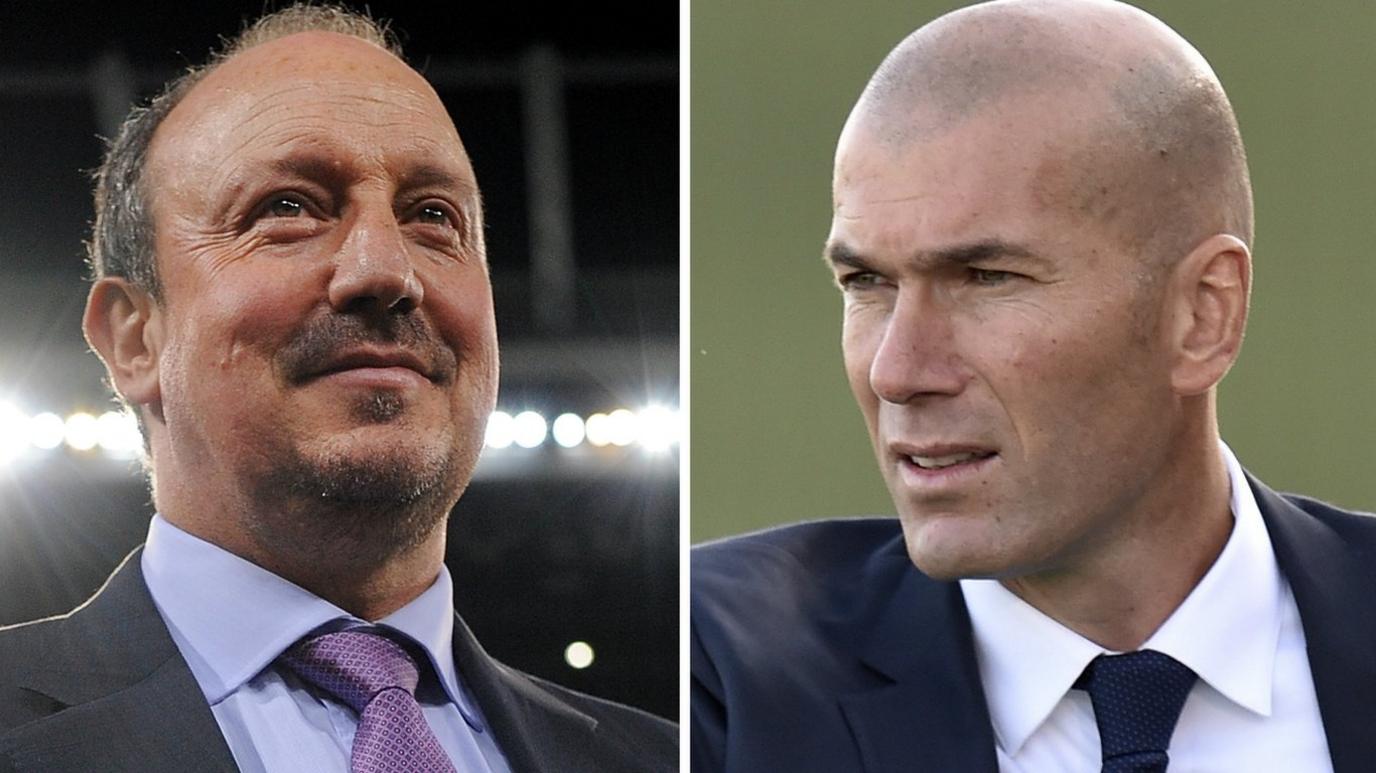
- Published20 June 2016

- Published7 June 2019
